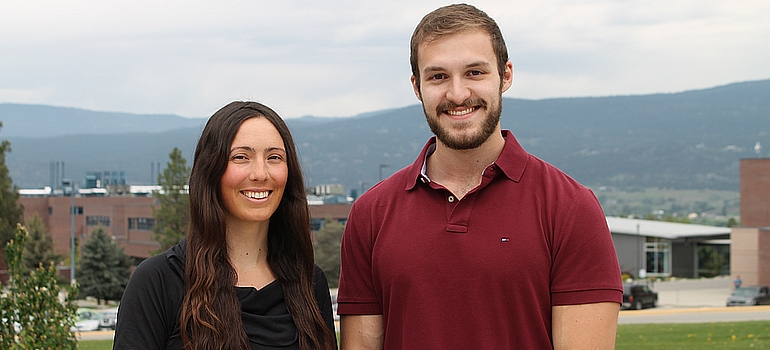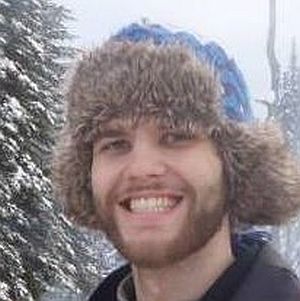Southern Medical Program Class of 2016 Graduate Profiles
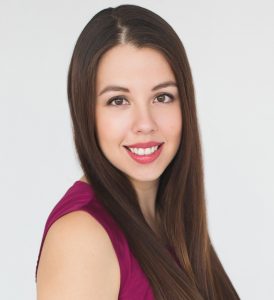 Patricia Caddy
Patricia Caddy
Hometown: Nanaimo BC
What have you enjoyed the most about your MD Undergraduate experience?
Without a doubt, the people. My SMP classmates have rallied around one another in times of stress and uncertainty, and have celebrated together in times of success. That kind of support is priceless. And countless doctors have taken the time to guide us with kindness and honesty. Mostly though, I’ve enjoyed and been grateful to the patients who have let us into their lives now, so that we can be of better service to others in the future.
What has surprised or challenged you in medical school?
What hasn’t surprised me or challenged me might be the better question. Putting down roots in Interior BC with 30 new friends was fun and exciting, as was travelling everywhere for rotations and CaRMS. At the same time, starting a new job in a new place every 2-4 weeks throughout fourth year was not without it’s own challenges. I have learned a lot about medicine, but more, I think, about myself, over these last 4 years.
What advice would you offer to upcoming students in the UBC MD program?
The courses that feel “fluffy” in the first couple years actually teach you things that, I promise, you will use every single day in medicine, no matter what specialty you choose. You will be sorry if you don’t learn those “soft skills” now. You can know the textbook, back to front, but if you don’t connect with the person in front of you, you’re not being as helpful as you could be.
What’s next for you?
I’m beyond proud to be heading back to my hometown of Nanaimo BC to pursue a career in family medicine. I hope to one day have a practice that is sensitive to the social determinants of health, and aims to reduce barriers to healthcare for stigmatized populations. And I hope to keep writing, learning, and sharing.
 Julia Hassler
Julia Hassler
Hometown: Saskatoon, SK
What have you enjoyed the most about your MD Undergraduate experience?
Patients. Individuals are so remarkable and unique. In medicine we are privileged to people’s personal lives and getting to know their whole story. I have so much enjoyed getting to know each patient. And most of all, I have loved the responsibility of providing care. Particularly through engaging in discussions and individualizing medicine to give the best care possible. It’s been so rewarding to carry out my passions towards a constructive purpose.
What has surprised or challenged you in medical school?
With all the demands and responsibilities in Medicine, maintaining self-care and leading a balanced lifestyle has been a challenge. There have been lots of sacrifices but a lot of unexpected rewards too – medical school and I have definitely had a give & take relationship!
What advice would you offer to upcoming students in the UBC MD program?
Recognize your values and protect the ideals you came here for. Make it your prerogative to make time for friends, family and activities outside of medicine – personal development is key to success for exams, stress & empathy and development as a professional. Oh and always say YES!!! to new adventures.
What’s next for you?
Family medicine in Victoria BC. This residency is a perfect fit for me as I like to keep busy and it’s filled with lots of exposure and acuity! I see myself delivering comprehensive family practice while also working in emergency departments. I now call BC home and hope to return to a community to call my own.
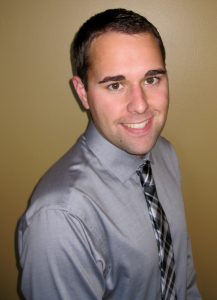 Kurt Hoskin
Kurt Hoskin
Hometown: Surrey, BC
What have you enjoyed the most about your MD Undergraduate experience?
Clinical rotations were definitely the best part of medical school as we got to piece together everything we learned in the first two years and apply it to the complexities of actual patients on the wards. I still remember the first time I reviewed a patient’s chart on a hospital ward; I was blown away by how many chronic diseases a patient could have. It was intimidating, but also motivating to learn and understand how to appropriately manage such complicated cases.
What has surprised or challenged you in medical school?
I was most surprised at how a patient changes from initial presentation to discharge. Some patients come in on the verge of death, and in a couple days they can be back to their ordinary self, smiling and laughing with family. Being a part of this transformation is an absolute privilege and it never gets old.
What advice would you offer to upcoming students in the UBC MD program?
Medical school is a lot of fun and it goes by extremely quickly, so please get everything out of it that you can. Be that positive medical student that wants to be involved in all aspects of medicine. Even if you think you know what specialty you want, go into every rotation with an open mind. You may be surprised what you actually like best.
Also be prepared for lots of feedback; probably more feedback than you have ever gotten before. And please, don’t take it personally, but instead use it to constantly make yourself a better medical student. You’ll get to work with so many different types of physicians that will all impact on how you practice as a future doctor.
Lastly, make sure you have a balanced approach to medical school. Don’t forget about your family and friends and always make sure you take time for yourself; whether that be regular exercise or some other activity, you need to have things outside of medicine that you look forward to.
What’s next for you?
I am excited to say that I get to stay in BC and start my residency in Internal Medicine in Vancouver.
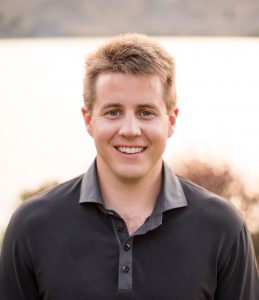 Travis Thompson
Travis Thompson
Hometown: Oliver, BC
What have you enjoyed the most about your MD Undergraduate experience?
The people involved in the SMP (students, physicians, staff and others) are who made this whole experience a once in a lifetime deal! The friends that I have made, people that I have met and experiences that I have had were fantastic!
What has surprised or challenged you in medical school?
I’m not able to think of anything in particular that was surprising because each day was full of little surprises. All were positive experiences though. Each day was full of challenges especially once the clinical years started. Learning how to function in the hospital setting was quite a learning curve.
What advice would you offer to upcoming students in the UBC MD program?
Have fun (but not too much fun haha)! Work hard and stay as positive as possible. There will be days that don’t go as you would have hoped, but it all works out in the end if you put in the time!
What’s next for you?
I’m headed to Penticton for the next two years for residency in family medicine. Hopefully I will be able to stay in the South Okanagan to practice once I’m done!
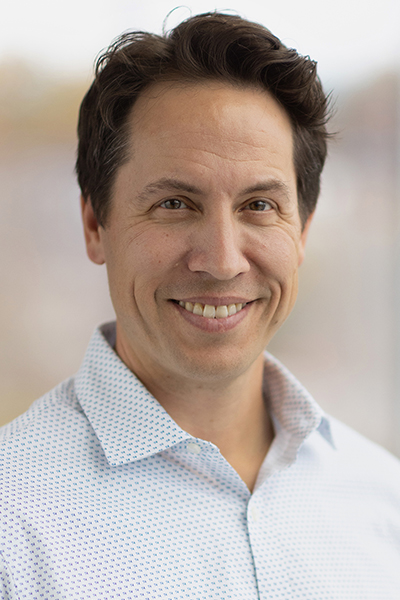






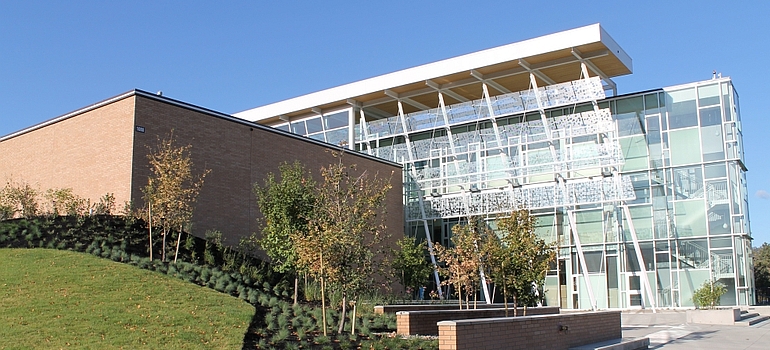
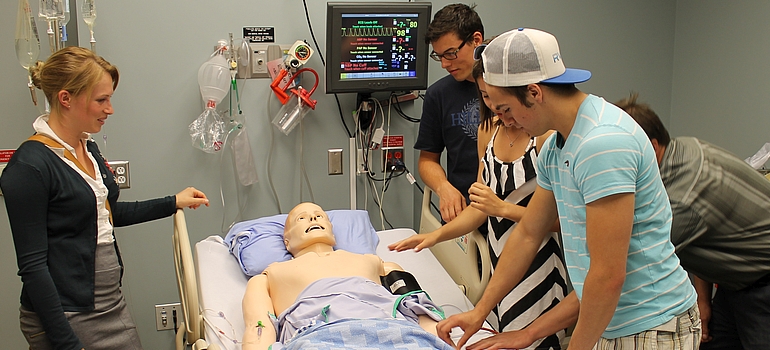


 Third-year Southern Medical Program (SMP) student Vincent Wong has been recognized with the 2016 Medical Student Leadership Award from the Canadian Federation of Medical Students (CFMS) and MD Financial Management. The annual award is given to one student from each of the 14 CFMS-member schools.
Third-year Southern Medical Program (SMP) student Vincent Wong has been recognized with the 2016 Medical Student Leadership Award from the Canadian Federation of Medical Students (CFMS) and MD Financial Management. The annual award is given to one student from each of the 14 CFMS-member schools.